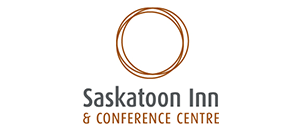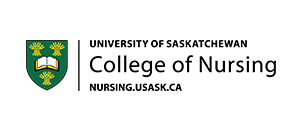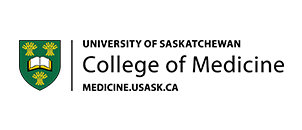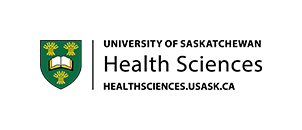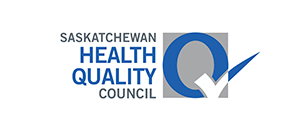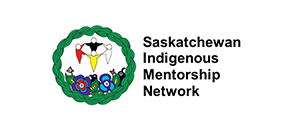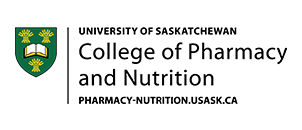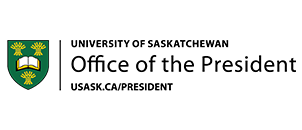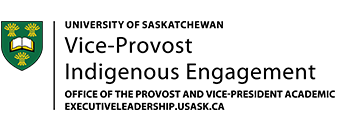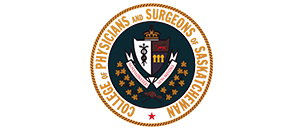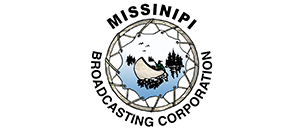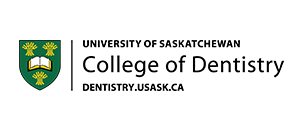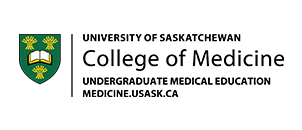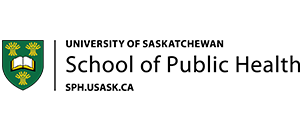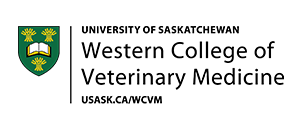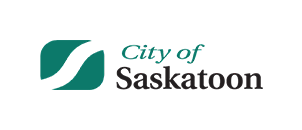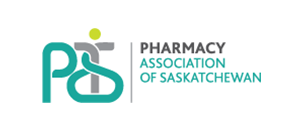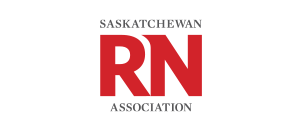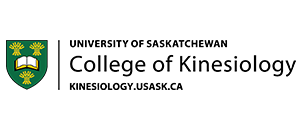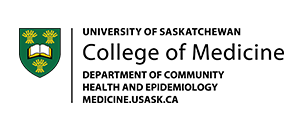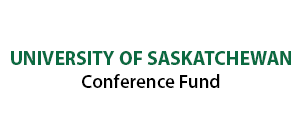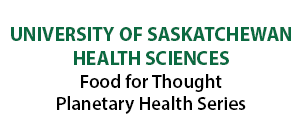COVID-19 ANNOUNCEMENT
APRIL 3, 2020
The planning committee for Gathering for miyomahcihowin and mii yoo naa kaa twayh ta mihk, co-chaired by Dr. Holly Graham and Cal Chiefcalf, would like to take this opportunity to thank everyone who had planned on attending the three-day event scheduled for March 24-26, 2020.
As we all navigate the difficult and unprecedented challenges posed by the COVID-19 pandemic, Gathering organizers have also been in discussions to determine how to responsibly handle next steps.
It will undoubtedly take time, patience, and no small amount of diligent, physical distancing to get to a point where we can begin the planning process to determine how and when we will be able to re-mount this important event. In the meantime, we feel that it is in the best interest of all involved for us to refund all purchased tickets for pre-conference workshops and event attendance.
As such, we will begin issuing refunds to all paying attendees and we will be “cancelling” all free tickets and registrations that had been claimed. The Eventbrite listing for the Gathering will also be cancelled in order to help facilitate refunds that, for some, may be required by their employers or to address new spending priorities.
On behalf of everyone involved with the Gathering, we thank you for your understanding during this difficult time and we look forward to addressing health priorities identified by First Nations, Métis, and Inuit community partners in Saskatchewan at a future date.
Until then, be safe and stay well.
MARCH 13, 2020
It is with a heavy heart that the organizers of the Gathering for miyomahcihowin and mii yoo naa kaa twayh ta mihk announce that we have collectively decided to postpone the March 24-26 event in light of recent concerns surrounding COVID-19. A new date will be communicated once confirmed.
As a University of Saskatchewan (USask) unit committed to improving health outcomes for the diverse peoples of Saskatchewan, Canada, and the world, the USask Health Sciences bears a responsibility to address the recent and very valid concerns of its event partners and the general public.
Although the risk of COVID-19 to Saskatchewan residents currently remains low, the health and safety of the public—including attendees, Indigenous Elders and Knowledge Keepers, and our presenters—is paramount.
We acknowledge and understand the inconvenience that this postponement causes. We also thank you for your patience as we work toward finding solutions to the number of questions that will undoubtedly arise surrounding refunds for our paying attendees, when the event will be rescheduled, and more.
In the meantime, we will post updates on this official Gathering website.
Please also consider sharing this announcement and future details with others who may be planning to attend the event.
We thank you for your understanding and patience as we all navigate this challenge together.
Sincerely,
Planning Committee
Gathering for miyomahcihowin and mii yoo naa kaa twayh ta mihk
About the 2020 Gathering
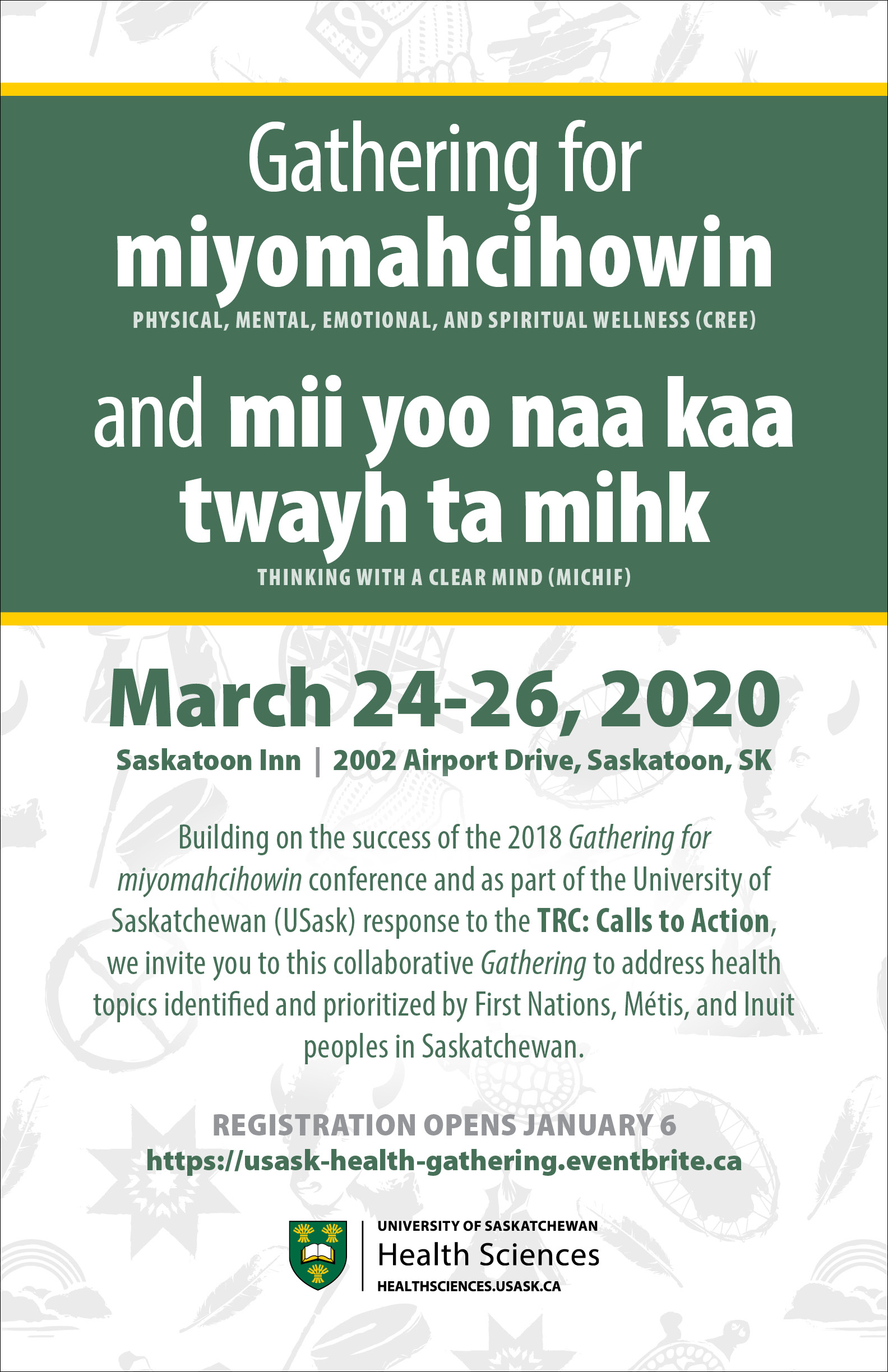
The University of Saskatchewan’s health science colleges and schools invite health professionals, Indigenous health service organizations, students, community partners and key Indigenous stakeholders to a three-day Gathering in Saskatoon, Saskatchewan.
Building on the success of the 2018 event, the committee has once again engaged Indigenous community members to identify health priorities. The Gathering will showcase approaches to developing reciprocal, respectful partnerships between communities and researchers. Internationally recognized local Indigenous health researchers will be invited to speak and guide sessions organized around identified health priorities.
2020 Health Priorities
- Mental wellness
- Recovery from addictions
- Living well with chronic conditions
- Promising approaches to wellness
- Healthy environments (food security, clean water, safe housing and access to healthcare)
The name of the event has evolved to include Michif language as well as Cree in order to more accurately reflect the health priorities and themes that will be shared and explored:
- miyomahcihowin (Cree) — physical, mental, emotional, and spiritual wellness
- mii yoo naa kaa twayh ta mihk (Michif) — thinking with a clear mind
Pre-conference workshop and speaker information will be added to this site as details are confirmed.
Registration & Important Dates
Registration for the Gathering opened January 6, 2020 via EventBrite.
| Wednesday, Dec. 11, 2019 |
Call for abstracts opens |
| Monday, Jan. 6, 2020 |
Registration for pre-conference workshops opens Deadline for abstract submissions closes (midnight CST) |
| Friday, Jan. 17, 2020 | Notification to successful abstract submitters |
| Tuesday, Feb. 4, 2020 | Early-bird registration closes (midnight CST) |
| Wednesday, Feb. 5, 2020 | Regular fee registration opens at 12:01 am |
| Sunday, Feb. 9, 2020 | Deadline for poster abstract submissions closes (midnight CST) |
| Sunday, Mar. 15, 2020 | All registration closes (midnight CST) |
| Tuesday, Mar. 24, 2020 | Pre-conference workshops |
| Wednesday, Mar. 25, 2020 | Gathering Day 1 |
| Thursday, Mar. 26, 2020 | Gathering Day 2 |
Pre-conference Workshops
The Indigenous Peoples’ Health Research Centre (IPHRC) and the Saskatchewan Centre for Patient-Oriented Research (SCPOR) are pleased to offer training modules for researchers and their teams seeking to engage Indigenous communities in research.
Entitled Building Research Relationships with Indigenous Communities (BRRIC), these modules offer a diverse array of essential information covering issues such as:
- the history of Indigenous health and research in Saskatchewan;
- existing policies and frameworks guiding research with Indigenous communities such as OCAP™, Truth and Reconciliation Commission Calls to Action, Tri-Council Policy Statement Chapter 9 and;
- protocol on how to respectfully and meaningfully engage communities in research projects.
Exploring the spiritual side of food and the energy it carries.
Presenter:
Daphie Pooyak
The KAIROS Blanket Exercise program is a unique, participatory history lesson — developed in collaboration with Indigenous Elders, knowledge keepers and educators — that fosters truth, understanding, respect and reconciliation among Indigenous and non-indigenous peoples.
Presented by a team of narrators from the Saskatchewan Health Authority First Nations and Métis Health Service.
About the presenter:
The First Nations and Métis Health Strategy was developed in partnership with the Saskatchewan Health Region, Central Urban Métis Federation Inc. and the Kinistin Saulteaux Nation. The goal of the First Nations and Métis Health Service is to better serve First Nations and Métis people in the care of Saskatoon Health Region and to provide them with an integrated and culturally respectful approach for treatment and other services.
NOTE: This workshop is limited to 45 participants.
Sheelah McLean and Verna St. Denis
Join presenters TJ Roy and Liz Durocher for a half-day workshop highlighting Métis culture. Presentations include Métis dancing/jigging demonstrations, storytelling with humour, and a celebration of Métis fashion.
Presenters:
Liz Durocher and TJ Roy
Time with kēhtē ayak (Knowledge Keepers) Louise Halfe and Austin Tootoosis.
Dr. Halfe will discuss the sometimes undulating pathway that she has taken in her life to bring her to where she is today.
Mr. Tootoosis will discuss principles of wahkohtowin, how we are all interconnected and interrelated. He will share his perspective of Indigenous Psychology, and Indigenous approaches to enhance individual and community healing — beginning with building community capacity. In addition, he will discuss reconciliation with a focus on Rebuilding and Reclaiming Indigenousness.
Wellness Wheel Workshop: Finding a Better Way Through Meaningful Community Engagement and a Culturally Responsive Approach
Indigenous people living on-reserve in Canada have higher rates of chronic conditions and face major barriers accessing healthcare. To address these gaps, physicians, nursing and support staff travel to provide clinics in-community in partnership with Indigenous communities. In response to these gaps in care, several approaches to providing care directly in/with/and for community have developed, with each community partner directing its’ own unique approach to care in collaboration with the Wellness Wheel (WW) team.
This interactive and engaging workshop will describe the unique features which led to the community driven models of care in partnership with WW, including community engagement in action and how communities can actively lead and drive this process. The workshop will also provide tangible and practical ways to ensure a culturally responsive approach to care, and for working in/with First Nations communities.
Finally, workshop participants will have opportunity to share experiences, discuss key priorities in engaging with community, discuss the holistic perspective of what an engaged community can achieve in partnership and how to apply this approach to directly impact and support communities in Saskatchewan.
Presenters:
Dr. Stu Skinner, MD; Dr. JoLee Sasakamoose, PhD; Dr. Megan Clark, MD; Dr. Lori Schramm, MD; Susanne Nicolay, Val Desjarlais, Darlene Bryant, and Dexter Asapac.
About the presenters:
Wellness Wheel clinics operate through health centres on Saskatchewan First Nation communities. The Wellness Wheel Clinical Team consists of primary care physicians, specialist physicians (nephrology, general internal medicine, dermatology and infectious disease), registered nurses, and support staff. The Wellness Wheel Clinical Team partners with community healthcare teams consisting of community health directors, Elders, peers, community-based healthcare staff, and homecare.
Speakers
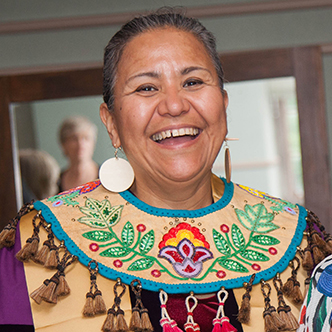
Dr. Carol Hopkins is the executive director of the Thunderbird Partnership Foundation (a division of the National Native Addictions Partnership Foundation) and is of the Lenape Nation at Moraviantown, ON. Carol was appointed as an Officer in the Order of Canada, 2018. In 2019, she was recognized with an honorary Doctor of Laws degree from Western University.
Carol Hopkins has spent more than 20 years in the field of First Nations addictions and mental health. She holds both a Master of Social Work degree from the University of Toronto and a degree in sacred Indigenous Knowledge, equivalent to a PhD in western-based education systems. Carol also holds a sessional faculty position in the School of Social Work at King's University College at Western University.
Carol has co-chaired national initiatives known for best practice in national policy review and development, resulting in: the First Nations Mental Wellness Continuum Framework (FNMWC), the Honouring Our Strengths: A Renewed Framework to Address Substance Use Issues Among First Nations in Canada, the Indigenous Wellness Framework, and best practice guidelines for culturally based inhalant abuse treatment. Carol has also inspired the development of the Native Wellness Assessment. In recognition of this work, Carol received the 2015 Champions of Mental Health Award for Research/Clinician, the Health Canada Innovations Award, was a member of the leadership advisory council to the Ontario Minister of Health and Long-Term Care, and was part of the Canadian delegation to the 2016 United Nations General Assembly, Special Session on the World Drug Problem. Carol also participates on a national mental health advisory council to the federal Minister of Health.
Presentation: Honouring Our Strengths for Understanding First Nations Mental Wellness
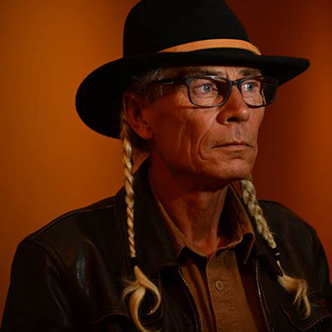
Born and raised in northern Saskatchewan to Cree Swede parents, Harold R. Johnson is now retired and living off grid on his family trapline. He has had a variety of careers: marine engineer, logger, miner, fisher, trapper, heavy equipment operator, mechanic, tree planter, lawyer, and author.
His published work includes five fiction and five non-fiction pieces, most of which have been shortlisted for Saskatchewan Book Awards, winning the fiction, non-fiction and Indigenous publishing prizes. Firewater: How Alcohol is Killing My People (and Yours) was shortlisted for a Governor General’s Award.
Presentation: Changing the Story — Reducing Harms from Alcohol Use
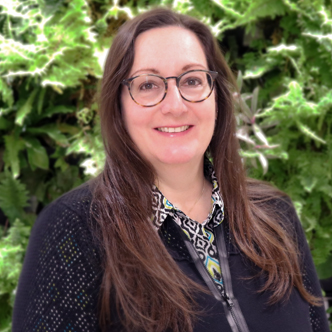
Dr. Sylvia Abonyi, PhD, is a medical anthropologist with the Saskatchewan Population Health & Evaluation Research Unit and an associate professor in the Department of Community Health and Epidemiology at the University of Saskatchewan.
She is a first generation Canadian, mother of two boys, and has been living in Saskatchewan for almost two decades. Throughout this time, Sylvia has worked closely with First Nation and Métis peoples and communities, as well as interdisciplinary and interprofessional research teams. Their collaborations address population health questions of mutual significance with the goal of informing interventions that will decrease inequities in circumstance and outcome.
Presentation: Kehokatowin (Gathering here and there) at the kitchen table to work together.
Tim Bayly is the owner of Radius Outdoor Sports Inc. and is employed as a special investigator for SGI. He has 20+ years experience with the Saskatoon Police Service also serving as a sniper with the SWAT team.
Presentation: Benefits of Land-Based Education
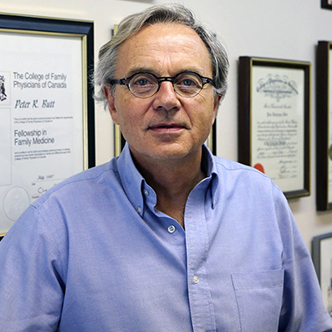
Dr. Peter Butt, MD, is a graduate of McMaster University and a certificant and fellow with the College of Family Physicians of Canada. He is an associate professor in the Department of Family Medicine at the University of Saskatchewan in a position dedicated to addiction medicine, and serves as a consultant to mental health and addictions in the Saskatoon Health Region.
National committee work includes the National Alcohol Strategy Advisory Committee, chair of the Canadian Alcohol Low Risk Drinking Guidelines Expert Advisory Group, co-chair of the Standard Drink Label Working Group, and member of the National Recovery Advisory Committee for the Canadian Centre on Substance Abuse, and physician lead on the Alcohol Screening, Brief Intervention and Referral project for the College of Family Physicians of Canada. Provincially, he is the physician lead on the Saskatchewan provincial Take Home Naloxone project, chairs the Opioid Advisory Committee for the College of Physicians and Surgeons of Saskatchewan, and serves on the Health Canada — First Nation Prescription Drug Abuse Initiative.
Presentation: Indigenous Mental Health — Challenges and Suggestions
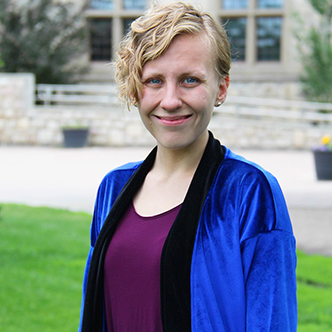
Dr. Megan Clark, MD, is a family physician in Regina. She works at the Family Medicine Unit teaching clinic as well as at Four Directions Community Health Centre in inner-city Regina. She participates in visiting clinics once per month on a southern Saskatchewan First Nation through the Wellness Wheel.
Presentation: Finding a Better Way
Dr. Megan Clark is also presenting the Wellness Wheel Workshop on March 24.
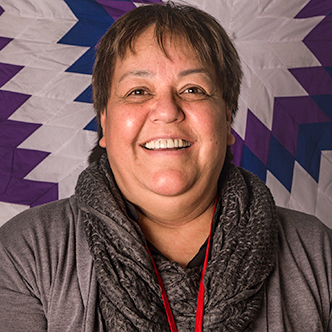
Liz Durocher is a Métis woman. Liz speaks Michif and Cree and has a background in social work and community development. She worked for many years in the community of Île-à-la-Crosse connecting youth with Elders, supporting the sharing of traditional and cultural practises between and among generations, in meaningful ways.
Presentation: Kehokatowin (Gathering Here and There) at the Kitchen Table to Work Together.
Workshop: Métis Culture Workshop
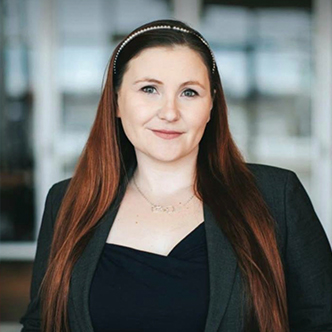
Dr. Kate Elliott, MD, is a proud member of the Métis Nation of Greater Victoria. She is a recent graduate of the University of Saskatchewan College of Medicine and the Global Health Certificate Program. Her research career involves the impact of structural violence on Indigenous health and well-being. She is interested in the impact of racism on Indigenous health care providers and how the TRC Calls to Action can be used to facilitate change.
Dr. Elliot is currently completing her residency in Indigenous family medicine at the University of British Columbia.
Presentation: Occupational Racial Violence in Healthcare—Call to action 23. ii
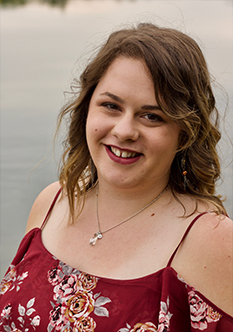
Tinaya Entz grew up in northern Saskatchewan on the Canoe Lake Cree First Nation. As a child, she spent her days playing outside and spending time with family. Growing up in a dual culture home with a Cree father and European mother, Tinaya witnessed the complexities of reconciliation and how broken relationships inside and outside of Indigenous communities complicate the important process of culture reclamation. She also witnessed and participated in the beauty of her family’s culture through song, knowing the land, and cultural traditions. Tinaya completed her education to become a certified music therapist at Capilano University in Vancouver, BC, and is happy to come home to Saskatchewan as a music therapy intern with the Healing Arts Program at St. Paul’s Hospital.
Her approach to therapy is deeply relational, trauma-informed, and utilizes her first-hand knowledge of issues faced by First Nations people. She believes that therapists must work to understand the multi-faceted internal and relational forces that influence a person, community, or culture before their work can truly be safe and effective. She uses music as a tool for reconciliation by integrating Indigenous and Western values and ways of knowing into her practice. This gives her patients tools to work through trauma and broken relationships as they move towards healing in all aspects of their well-being.
Tinaya lives in Saskatoon, SK, with her husband, Fred. You can find them strolling by the river or taking part in the festivals and events in their community.
Presentation: Holistic Healing Approaches with Creative/Expressive Therapies in Hospital
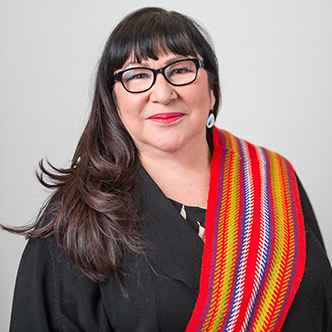
Marg Friesen is a Métis woman from the Qu’Appelle Valley, a devoted wife, mother of five, and a grandmother of seven grandchildren. She resides in the town of Indian Head, SK — part of the historical Métis Homeland. Her family has a strong history in the valley and has lived there for generations. Her spirit has brought her back to her roots and she is motivated to make a difference with communities and the people she serves.
Marg was elected in May of 2017, as regional representative for Eastern Region III, government of Métis Nation Saskatchewan. She is a governing member of the Provincial Métis Council and currently holds the portfolios for the Ministry of Health and Métis Addictions Council of Saskatchewan. She is also a governing member of Métis National Council Health Committee.
The focus of Marg’s work in health is meaningful, effective, and it influences program and service delivery with systems, research, and development including alternative medicine and innovation in healthcare. Marg’s formal education is with the University of Regina. Her professional role as a community development practitioner has provided her meaningful work with a special interest in the non-profit and disability sector.
She brings experience in community leadership, non-profit management, community engagement philosophies and practices, knowledge gathering, and research. She has pursued a career in community development with the hope of inspiring others, providing support, implementing capacity-building strategies, and mobilizing resources to assist in building stronger, viable, sustainable communities.
Presentation: Métis-specific Health Strategies—Steps towards Developing a Métis-specific Cancer Strategy in Saskatchewan
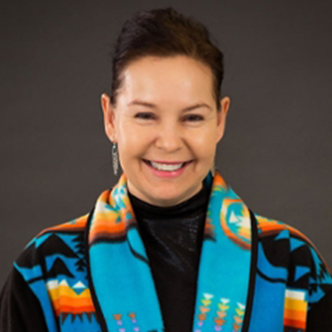
Dr. Holly Graham, PhD, is a member of the Thunderchild First Nation. She has worked as a registered nurse in a variety of northern communities and additional health care environments since 1985. Holly is an assistant professor in the College of Nursing at the University of Saskatchewan. She maintains an active practice as a registered doctoral psychologist, working primarily with individuals who have experienced trauma and symptoms of posttraumatic stress disorder (PTSD). Holly's research focuses on Indigenous health, mental health, and wellness.
Presentation: Indigenous (First Nation and Métis) Mental Wellness—Practical Strategies for Crisis Stabilization and Addressing Personal Trauma
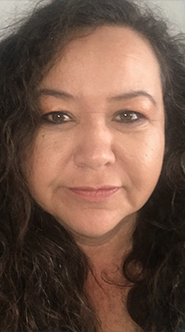
Juanita Graham has worked with the youth and their families for over two decades within a school setting as a registered social worker. For the past five years, she has worked exclusively with Indigenous peoples (First Nation & Métis) in various settings — the First Nations and Métis Health Service in Saskatoon, as a crisis response mental health therapist in various First Nation communities, and most recently as the director of health in Thunderchild First Nation.
Juanita’s personal experiences, passion, and motivation inform the sensitivity and respect she practises in responding to—and meeting—the needs of communities.
For Juanita, a cultural approach is pivotal to connecting with First Nation people. She looks forward to continuing a dialogue that is respectful and supports Indigenous peoples.
Presentation: Indigenous (First Nation and Métis) Mental Wellness—Practical Strategies for Crisis Stabilization and Addressing Personal Trauma
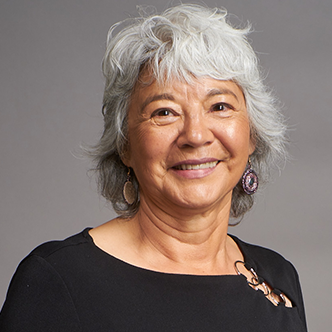
Louise Bernice Halfe – Sky Dancer was raised on Saddle Lake Reserve and attended Blue Quills Residential School. Louise is married and has two adult children and three grandsons. She graduated with a Bachelor of Social Work from the University of Regina. She also completed two years of Nechi Training in St. Albert’s Nechi Institute where she also facilitated the program. She served as Saskatchewan’s Poet Laureate for two years and has traveled extensively. She has served as keynote speaker at numerous conferences.
Her books, Bear Bones and Feathers, Blue Marrow, The Crooked Good, and Burning In This Midnight Dream published by Coteau Publishers have all received numerous accolades and awards. Louise was also awarded an honorary degree from Wilfred Laurier University.
Workshop: Time with kēhtē ayak (Knowledge Keepers)
Murray Hamilton is Michif and originally from Lebret, SK. He has spent most of his adult life involved in the design, development, and delivery of Michif/Métis-specific educational and cultural programs and services. He spent 29 years working for the Gabriel Dumont Institute at the University of Saskatchewan campus. He believes fervently that only when students develop a thorough conscientiousness of themselves and their history can they be of benefit to their communities. He is also a historian and possesses considerable expertise in Michif/Métis history, genealogy, and folklore. Some say he has more than a personal kinship connection with "rougarous."
Presentation: Métis Storytelling, Identity, and Wellness
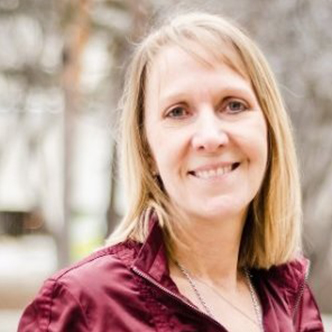
Rita Hanoski is the health education coordinator at the University of Saskatchewan (USask) and is a strong supporter of peer-to-peer education. Each fall, she recruits and trains students to carry out health outreach on campus.
Because of the peer mentor approach, there have been many health outreach successes, including the Sexual Wellness Program that will be presented. Rita has been in this role for about 15 years. In her non-work hours, she enjoys learning and playing the ukulele, and has spent the last five years building a cabin with her husband.
Presentation: A Peer Model Approach to Sexual Wellness
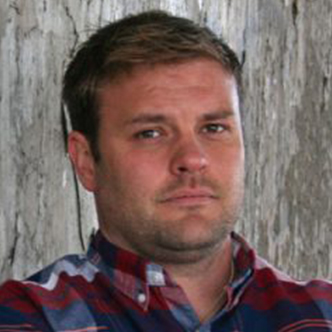
Dr. Robert Henry, PhD, is Métis from Prince Albert, SK, and is an assistant professor at the University of Saskatchewan in the Department of Indigenous Studies.
Robert’s research areas include Indigenous street gangs and gang theories, Indigenous masculinities, Indigenous and critical research methodologies, youth mental health, and visual research methods.
Working closely with community partners, he published a collection of narratives from his PhD research titled, Brighter Days Ahead (2014). Robert has published in the areas of Indigenous masculinity, Indigenous health, youth subcultures, and criminal justice.
Presentation: Introducing the Saskatchewan First Nations and Métis Health and Wellness Research, Training, and Knowledge Mobilization Network (Saskatchewan’s NEIHR centre) and the National NEIHR Coordinating Centre
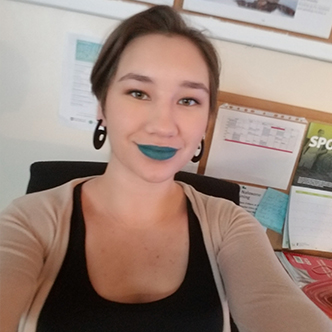
As a first year university student, Daisy Houle began volunteering with the Student Wellness Centre's Peer Health program. This past year, she became the sexual wellness student facilitator and began developing programming and organizing student volunteers to deliver sexual wellness outreach at the University of Saskatchewan (USask).
She decided to start a sex education series of instruction and discussion after hearing from students that they would love to learn more about their own sexual wellness and get information on intimate relationships. She calls these sessions "The Sex Ed You Didn't Learn" and they are open to all USask students. Since beginning these sessions, she has been sought out by a Saskatoon organization to co-lead similar sessions to at-risk community women.
Presentation: A Peer Model approach to Sexual Wellness
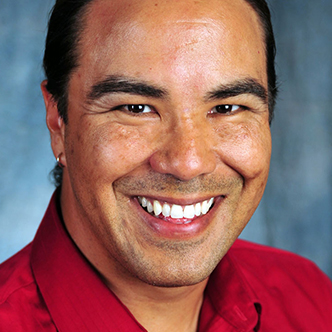
Dr. Derek Jennings, PhD, (Anishinaabe/Sac and Fox, Quapaw) is a faculty member in the Department of Community Health and Epidemiology at the University of Saskatchewan. Dr. Jennings collaboratively engages with Indigenous communities to help solve chronic health issues. His research interests include increasing Indigenous health and well-being and preventing obesity in Indigenous communities.
Dr. Jennings utilizes and develops methodologies that can best meet communities’ needs while providing control over their research and health equity. These methods include community-based participatory research, photovoice, digital storytelling, and other qualitative methods. He seeks to engage communities and individuals in the process of research to develop community-driven interventions. He further leads several community-based participatory research projects with tribal organizations.
Presentation: Understanding inflammatory bowel disease among indigenous peoples in Saskatchewan—a framework and preliminary results
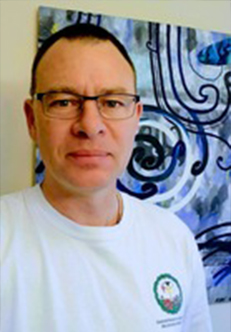
Dr. Simon Lambert, PhD, is from Aotearoa, New Zealand, and is a member of the Tuhoe and Ngati Ruapani tribes. His doctoral research was on small-scale Maori horticulture and he was awarded his PhD in 2008 from Lincoln University.
Prior to that, he was awarded a MA (Hons) degree from the University of Canterbury after researching the assessment of environmental vulnerability in the Pacific. Following the 2010-11 earthquakes in Christchurch, Simon’s research has focused on disaster risk reduction for Indigenous communities with particular interest in urban Indigenous groups.
Presentation: Introducing the Saskatchewan First Nations and Métis Health and Wellness Research, Training, and Knowledge Mobilization Network (Saskatchewan’s NEIHR centre) and the National NEIHR Coordinating Centre
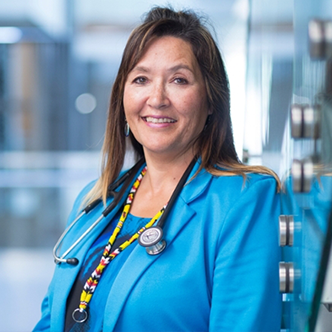
Dr. Veronica McKinney, MD, is the director of Northern Medical Services. Veronica is of Cree/Métis descent and provides leadership in health development in northern Saskatchewan Aboriginal communities promoting the evolution and advancement of healthy communities. She is an assistant professor and chair of the University of Saskatchewan College of Medicine Indigenous Health Committee and serves on various boards and committees. She practices clinical medicine at the Westside Community Clinic in Saskatoon. She believes strongly in her traditional cultural teachings and applies them to her practice of medicine. She is a strong advocate for Aboriginal people’s health, having witnessed and experienced the inequities firsthand.
Presentation: Indigenous Mental Health — Challenges and Suggestions
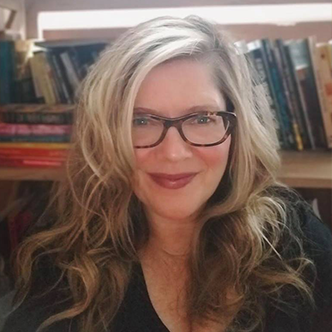
Dr. Sheelah McLean, PhD, is a third generation white settler from Treaty 6 territory. She is an anti-racist teacher, researcher, and scholar whose work has focused on addressing white supremacy within a settler colonial context.
Sheelah is also an organizer in the Idle No More network, a movement that calls for the protection of Indigenous sovereignty and land. Sheelah works in curriculum development for San’yas Indigenous Cultural Safety Training, delivered by the Provincial Health Services Authority of British Columbia.
Workshop: Mapping the Harm of Anti-Indigenous Racism in Health Care—An Open Discussion
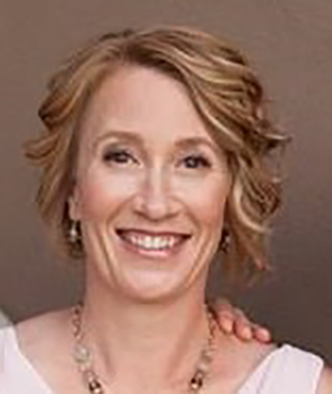
Susanne Nicolay is a RN with diverse experience in acute and long-term care, community and public health, research and policy development, management and education. Susanne’s roots are in medicine and chronic disease.
Since the fall of 2016, Susanne has been the clinic and projects coordinator with Wellness Wheel. Wellness Wheel is a not-for-profit organization working in/with and for First Nations communities across Saskatchewan to provide primary and chronic/communicable diseases care utilizing a community-driven approach within a culturally responsive framework.
Presentation: Finding a Better Way
Susanne Nicolay is also presenting the Wellness Wheel Workshop on March 24.
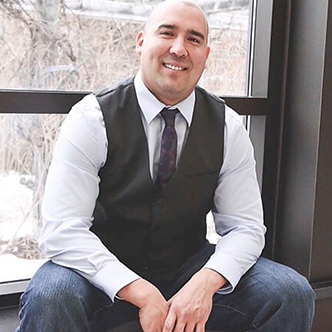
Carlin Nordstrom is a member of the Poundmaker Cree Nation. He attended Western Michigan University, playing NCAA Division 1 Hockey, and then went on to a four-year professional career. He also attended the Ottawa Senators camp in 1999, playing two games.
Carlin started Kisik Sports Health and Wellness in the summer of 2016. It started with general sports and hockey skills development camps and quickly evolved to include agility work outs, health and wellness workshops, and motivational presentations. This all lead to land-based education camps—a perfect fit for Carlin after spending years as a hunting and fishing guide. His company has been offering land-based education since the fall of 2018.
Concurrent Presentation: Benefits of Land-Based Education
Pleanry Presentation: Turning Struggles into Success
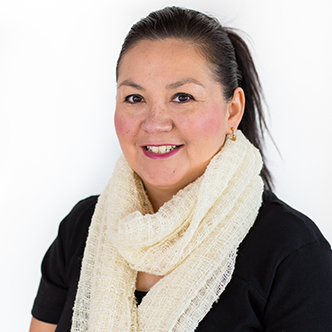
Darlene R. Okemaysim-Sicotte, is a Cree from Beardy’s & Okemasis First Nation near the town of Duck Lake, SK, and was educated at Rivier Academy in Prince Albert and the University of Saskatchewan (USask).
Darlene has been working with the Gordon Tootoosis Nikaniwin Theatre since 2013. Darlene’s past experiences in the workplace include being executive assistant at Saskatchewan Indian Institute of Technologies, departmental secretary at USask Native Studies, and One Earth Farms FN LP.
Darlene is also a 15-year member of the Saskatoon concerned citizens group Iskwewuk Ewichiwitochik (Women Walking Together) whose focus is on missing and murdered Indigenous women and girls. Darlene received the Queen Elizabeth II Diamond Jubilee Medal in January 2013 for this volunteerism and was a national finalist, and, later a juror, for the Samara.com Everyday Political Citizen project.
Darlene has written published articles and engages in local, provincial, and national interviews with media outlets on Missing and Murdered Indigenous Women. Darlene has been the non-legal advocate and co-chair for Iskwewuk E-wichitochik (Women Walking Together) which had Party With Standing status for National Inquiry to MMIWG2S.
She currently lives in Saskatoon with her husband, Chris Sicotte, and is mother to Christopher, Cory, Aren, and Sunflower; and grandmother to Albert Jr., Dayshawn, and Joseph — all of whom enjoy the local, provincial, and national arts scene.
Presentation: Calls for Justice MMIWG2S—Rights to Wellness
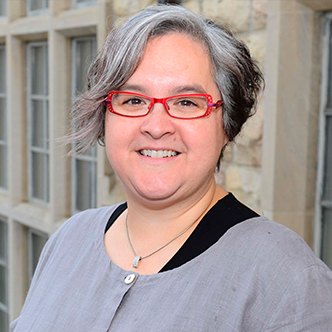
Dr. Sarah Oosman, PhD, is a physical therapist and an associate professor in the University of Saskatchewan School of Rehabilitation Science and a researcher with the Saskatchewan Population Health & Evaluation Research Unit. She is a first-generation Canadian, a mother of two children, and is committed to Indigenous community-driven action research that leads to the development and implementation of culture-based, meaningful health promoting interventions across the lifespan. Sarah’s research focuses on community perspectives of healthy aging within, between, and across generations, connecting seniors to youth in ways that are strongly grounded in Indigenous worldview.
Presentation: Kehokatowin (Gathering here and there) at the kitchen table to work together.
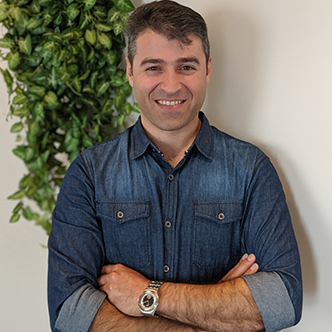
Adel Panahi’s background consists of 15 years of experience in community empowerment and policy development, strategic planning, and community health promotion. He received his Master of Political Studies in 2003 and, since then, started his career working in different levels of public sector and non-governmental organizations developing strategies and policies to promote health and wellbeing of underserviced communities.
In 2013, Adel graduated from the Johnson-Shoyama School of Public Policy at the University of Saskatchewan. Since then, he has been working in Saskatchewan in the fields of budgeting and planning, policy analysis, community health and well-being promotion, Indigenous health, healthcare quality improvement, and community-based research.
Adel is passionate about community empowerment and Indigenous health and well-being. He started working with Métis Nation-Saskatchewan in 2018 as the director of health and is committed to promoting health and well-being of Métis citizens in Saskatchewan.
Presentation: Métis-specific Health Strategies—Steps towards Developing a Métis-specific Cancer Strategy in Saskatchewan
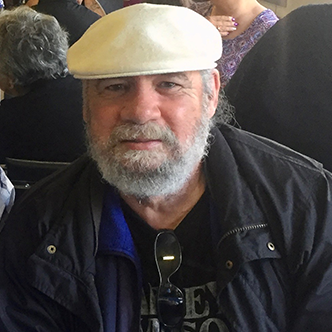
Roger Pelletier is a Michif storyteller from Lebret, SK. He is a retired social worker who dedicated his life to working with families and youth in care and in conflict with the justice system. He is very knowledgeable about the genealogy and kinship ties of the Michif people. His sense of humour and gentle teaching is appreciated in his many circles of friends and family. His ancestral roots are directly from the Red River Métis and he comes from a large family of 12.
Presentation: Métis Storytelling, Identity, and Wellness
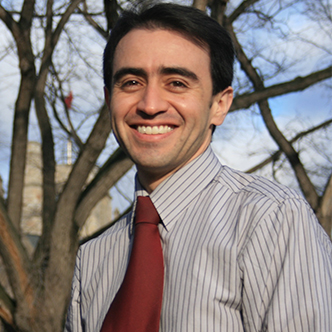
Dr. Juan-Nicolás Peña-Sánchez, PhD, is a faculty member in the Department of Community Health and Epidemiology at the University of Saskatchewan. He is a physician from Colombia with a European Master of Public Health and a PhD from the University of Saskatchewan.
During the last decade, Dr. Peña-Sánchez has been working with interdisciplinary research teams from different countries. His collaborative and interdisciplinary research program aims to study innovative health care approaches that address the needs of populations and overcome challenges of health care systems. Dr. Peña-Sánchez is the Saskatchewan lead of collaborative inflammatory bowel disease (IBD) national studies using administrative health data.
Presentation: Understanding Inflammatory Bowel Disease among Indigenous Peoples in Saskatchewan—A Framework and Preliminary Results
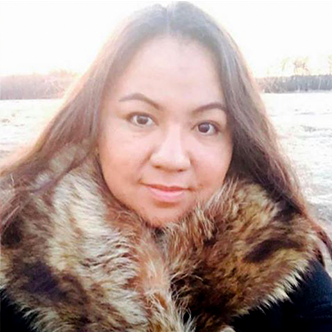
Identifying as a Nakota Cree traditional teacher, and cultural advisor, Daphie Pooyak comes from Sweetgrass First Nation located in central Saskatchewan and is a mother of five children and grandmother of four.
Over the course of 20 years, she has worked as a professional educator specializing in cultural education and land-based learning. Daphie has also spent eight years with Saskatchewan Corrections working with inmates in the areas of healing and trauma. She also spent four years at Ekwaskeet Healing Lodge in Onion Lake Cree Nation and two years at Nelson House, Manitoba, in their community healing lodge working in the areas of addictions, healing, and trauma.
In recent years, Daphie has facilitated several presentations on healing trauma, natural law, and traditional medicine throughout Canada, the United States, and Mexico. A notable presentation in 2015 involved Daphie being asked to join in prayer and speak at “World Peace & Prayer Day” in Oregon and at “Parliament of the World's Religion” hosted by the United Nations in Salt Lake City.
Her passion remains, to her roots, in hosting traditional survival camps over the past 10 years in her Sweetgrass First Nation community. Daphie was taught traditional healing from an early age and continues her practise in traditional healing and wellness.
Workshop: Food Is Medicine — You Are What You Eat
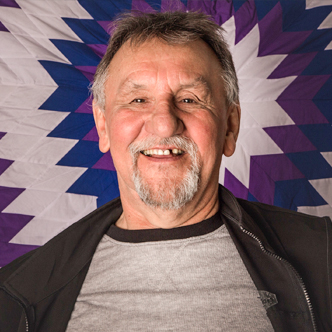
TJ Roy is a Woodland Cree and Métis man who spends his time connecting older adults and youth to the Métis cultural practises, including activities and engagement in land-based activities that are rooted in Métis beliefs and worldview. TJ speaks Cree and Michif, has a background in community development, and brings his traditions and knowledge to all of his work with communities, classrooms, and peoples.
Presentation: Kehokatowin (Gathering here and there) at the kitchen table to work together.
Workshop: Métis Culture Workshop
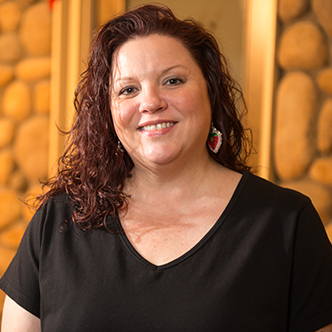
Dr. JoLee Sasakamoose, PhD, is an Anishinabe (Ojibwe) with membership in M’Chigeeng First Nation in Ontario and is an active citizen of Ahtahkakoop Cree Nation in Saskatchewan. Dr. Sasakamoose is the research director of the Indigenous Wellness Research Community Network and Wellness Wheel Medical Clinic in Saskatchewan.
The Indigenous led network engages clinicians and patients as co-researchers in areas of HIV/infectious/chronic disease prevention and treatment, mental health and addictions, and the uses of traditional plant-based medicines and land-based healing for wellness. With funding from multiple agencies, the network is bringing wellness into First Nations and Metis communities throughout Saskatchewan.
Dr. Sasakamoose is an associate professor in educational psychology and counselling at the University of Regina. In partnership with the First Nations communities of Saskatchewan, she co-authored the Indigenous Cultural Responsiveness Theory (ICRT), a theoretical framework to guide research that improves the health of Indigenous peoples in Saskatchewan. She teaches Group Counselling, Counselling Girls and Women, Counselling Children and Youth, Indigenous Family Therapies, and Decolonizing Research Methodologies.
Presentation: Finding a Better Way
Dr. JoLee Sasakamoose is also presenting the Wellness Wheel Workshop on March 24.
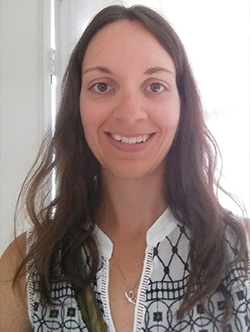
Dr. Lori Schramm, MD, is a clinical assistant professor and a family physician in Regina. Her family comes from the small hamlet of Goodeve, SK (population ~40). She completed her undergraduate training at the University of Saskatchewan and her residency in the Indigenous Family Medicine site in Duncan, BC.
She worked in the northern Métis community of Ile-a-la-Crosse, SK, for two years doing predominantly emergency and office-based practice. Recently, she started Academic Family Medicine in Regina where she split her time between the Family Medicine Unit, 4 Directions and Planned Parenthood.
Her interests include Indigenous health, obstetrics, women’s health, palliative care, and transgender health. She also works on a sessional basis with palliative care, labour and birth, and the Wellness Wheel Team (visiting services to Touchwood Agency Tribal Council First Nations communities).
Her interests outside of medicine include anything outdoors (particularly Nordic skiing, snowboarding, paddle boarding, kayaking, camping, and hiking), traveling, and cooking.
Presentation: Finding a Better Way
Dr. Lori Schramm is also presenting the Wellness Wheel Workshop on March 24.
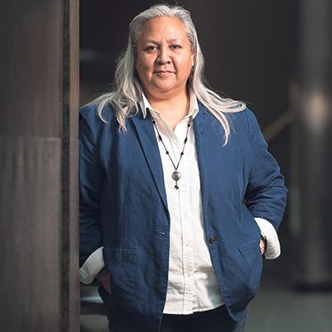
Raven Sinclair, PhD, is Nehiyaw, Saulteaux, and Métis from George Gordon First Nation in Saskatchewan. She is a professor of social work at the University of Regina, Saskatoon campus. Raven is a survivor of the Indigenous child removal system. She is a member of the Canadian Institutes of Health Research College of Reviewers, the Waakebiness-Bryce Institute for Indigenous Health, and she is a federal court appointed advisor to the Sixties Scoop Foundation arising out of the Sixties Scoop Class Action victory.
Raven is the executive producer of a documentary titled The Sixties Scoop in Splatsin First Nation. She is an executive producer of the feature film Trouble in the Garden (available on iTunes). Raven’s favourite and most important role, however, is being the mother of a beautiful teenage daughter. In her spare time, Raven likes to renovate and build things. She is a chess addict and she likes to stay at least three moves ahead of her opponents.
Presentation: The Sixties Scoop — Indigenous Health and the Imposed Trauma Cascade
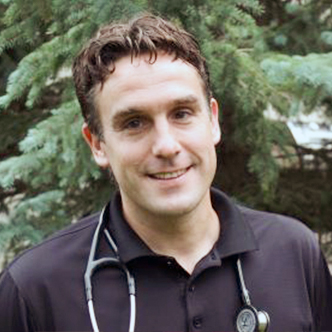
Dr. Stuart Skinner, MD, received his medical degree from the University of Saskatchewan in 2002. He also holds a Diploma in Tropical Medicine and Hygiene from the Gorgas Institute at the University of Alabama(2005). Dr. Skinner is a Fellow of the Royal College of Physicians of Canada (2006), and holds a Certificate of Special Competence in Infectious Diseases (2007).
Currently, Dr. Skinner works as an infectious disease specialist at the Regina General Hospital Infectious Diseases Clinic and travels to several locations in Saskatchewan to provide infections disease clinics. In addition, Dr. Skinner has been instrumental in designing the Wellness Wheel, which is a community led, multi-disciplinary and integrated approach to health care disparities affecting First Nation communities.
Dr. Skinner is also the principal investigator on several research grants. Past positions include assistant professor, Department of Medical Microbiology, at the University of Manitoba; and assistant professor, Department of Medicine, at the University of Saskatchewan.
Presentation: Finding a Better Way
Dr. Stuart Skinner is also presenting the Wellness Wheel Workshop on March 24.
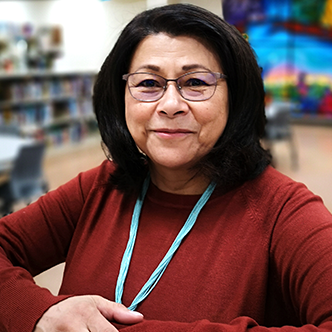
Dr. Verna St. Denis, PhD, is a professor of education at the University of Saskatchewan where she teaches undergraduate and graduate courses in integrated anti-racist education in the Department of Educational Foundations.
She is both Cree and Métis and a member of the Beardy’s and Okemasis First Nation. She has received several awards that recognize her excellence in teaching, research, community engagement, and scholarship.
Workshop: Mapping the Harm of Anti-Indigenous Racism in Health Care—An Open Discussion
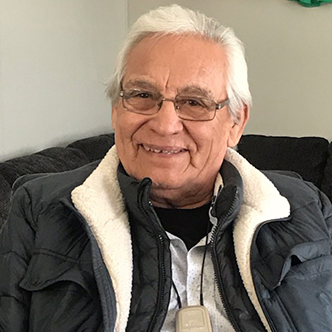
Mr. Tootoosis is a member of the Poundmaker First Nation, SK. For over 30 years, he has provided counselling services for Indigenous (First Nation and Métis) people struggling with various addictions since completing his diploma in social work, at the First Nations University of Canada.
Mr. Tootoosis has worked with individuals in correctional institutions, First Nation communities, and various healing centers. Now he is a highly sought-after consultant, teacher, and workshop facilitator for Indigenous wellness—miyomahcihowin. Austin refers to himself as a Counsellor for Life and Traditional Culture.
Workshop: Time with kēhtē ayak (Knowledge Keepers)
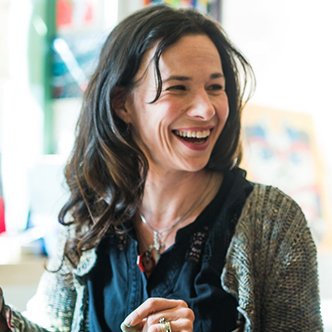
Marlessa Wesolowski is a multi-modal artist residing in Saskatoon, SK. In 2005, she co-created the St. Paul’s Hospital Healing Arts Program in Saskatoon.
As as artist-in-residence, she understands engaging the imagination and artistic exploration through supported creativity to be sources of health and wellness for patients, family, and community. She utilizes an arts-based approach in education, mentorship, and research that integrates Traditional and Western approaches into healthcare and its delivery.
Her practice of expressive arts in health and community care complements a holistic paradigm that encourages one’s innate capacity to restore and nurture a natural state of becoming through disciplines of the arts.
In 2019, Marlessa competed her Master of Expressive Arts Therapy at the European Graduate School, Arts, Health, and Society Division.
Presentation: Holistic Healing Approaches with Creative/Expressive Therapies in Hospital
Agenda
Tuesday, March 24, 2020 — PRE-CONFERENCE WORKSHOPS
Please note that the schedule is subject to change.
| 7 – 8:30 am | Registration and Light Breakfast | |
| 8:30 am |
Food is Medicine: You Are What You Eat Workshop sponsored by the USask Health Sciences Food for Thought Planetary Health Series |
Ballroom A |
| Métis Culture Workshop TJ Roy and Liz Durocher |
Ballroom B | |
| Mapping the Harm of Anti-Indigenous Racism in Health Care — An Open Discussion Sheelah McLean and Verna St. Denis |
Ballroom C |
|
| KAIROS Blanket Exercise Onion Lake Crisis Team |
Canadian Room | |
| Time with kēhtē ayak (Knowledge Keepers) PART I Louise Halfe and Austin Tootoosis |
Brass Lantern Room | |
| 12 – 1 pm | Networking Lunch |
|
| 1 pm | Finding a Better Way Through Meaningful Community Engagement and a Culturally Responsive Approach Wellness Wheel |
Ballroom B |
| Building Research Relationships with Indigenous Communities (BRRIC) * Indigenous Peoples’ Health Research Centre (IPHRC) and the Saskatchewan Centre for Patient-Oriented Research (SCPOR) |
Ballroom C | |
| Time with kēhtē ayak (Knowledge Keepers) PART II Louise Halfe and Austin Tootoosis |
Brass Lantern Room | |
Afternoon workshops continue until 4:30 pm. * BRRIC workshop continues until 5:30 pm. |
||
Wednesday, March 25, 2020
Please note that the schedule is subject to change.
| 7 – 8:30 am | Registration and Light Breakfast | |
| 8:30 am | Opening Ceremony | Ballroom A, B, C |
| 9:30 am |
PLENARY 1.0 |
Ballroom A, B, C |
| 10:30 – 11 am | Health Break | |
| 11 am |
PLENARY 2.0 |
Ballroom A, B, C |
| 12 - 1 pm | Networking Lunch | |
| 1 pm | Goals and background to the Gathering for miyomahcihowin and mii yoo naa kaa twayh ta mihk Dr. Holly Graham, PhD, on behalf of the event planning committee |
Ballroom A, B, C |
| 1:15 pm |
PLENARY 3.0 |
Ballroom A, B, C |
| 2:15 - 2:30 pm |
Health Break | |
| 2:30 pm |
CONCURRENT SESSION 1A |
Ballroom A |
|
CONCURRENT SESSION 1B |
Ballroom B | |
|
CONCURRENT SESSION 1C |
Ballroom C | |
|
KAIROS Blanket Exercise NOTE: This exercise runs from 2:30 to 5:30 pm |
Canadian Room | |
| 3:30 pm |
CONCURRENT SESSION 2A |
Ballroom A |
|
CONCURRENT SESSION 2B |
Ballroom B | |
|
CONCURRENT SESSION 2C |
Ballroom C | |
| 4:30 pm | Free Time |
Thursday, March 26, 2020
Please note that the schedule is subject to change.
| 7 – 8:30 am | Registration and Light Breakfast | |
| 8:30 am | Greetings and Reflections on Wednesday | Ballroom A, B, C |
| 8:45 am |
PLENARY 4.0 |
Ballroom A, B, C |
| 9:45 - 10:15 am | Health Break | |
| 10:15 am |
PLENARY 5.0 |
|
| 11:30 am - 12:30 pm | Networking Lunch | |
| 12:30 pm |
CONCURRENT SESSION 3A |
Ballroom A |
|
CONCURRENT SESSION 3B |
Ballroom B | |
|
CONCURRENT SESSION 3C |
Ballroom C | |
| 1:30 pm |
CONCURRENT SESSION 4A Métis Storytelling, Identity, and Wellness Roger Pelletier and Murray Hamilton |
Ballroom A |
|
CONCURRENT SESSION 4B |
Ballroom B | |
|
CONCURRENT SESSION 4C |
Ballroom C | |
| 2:30 - 3 pm | Health Break | |
| 3 pm | PLENARY 6.0 Turning Struggles into Success Carlin Nordstrom |
Ballroom A, B, C |
| 4 - 4:30 pm |
Closing Ceremony | Ballroom A, B, C |
Call for Abstracts
The Gathering is providing an opportunity for presenters to share knowledge, papers, research, ideas, and strength-based approaches.
At the Gathering, poster presenters will have the opportunity to speak to a diverse audience that includes Elders, kēhtē ayak (Knowledge Keepers), students, community members, health care providers and health service organizations.
The Gathering is providing an opportunity for presenters to share knowledge, papers, research, ideas, and strength-based approaches.
A diverse audience that includes Elders, kēhtē ayak (Knowledge Keepers), students, community members, health care providers and health service organizations is being invited to the Gathering.
Presenters will have a 45-minute workshop and 15 minutes for questions and answers to showcase best and wise practices to address one of the five health priority areas while highlighting reciprocal, respectful partnerships with Indigenous Peoples.
Poster submissions will also be accepted.
Each successful presentation submission will have access to WiFi, projectors, and sound. All other materials are the responsibility of the presenter.
In our efforts to highlight the work of Indigenous scholars, kēhtē ayak, Elders, and students, each presentation's lead presenter must be of Indigenous ancestry. Allies are welcome to submit as co-presenters.
Location & Accommodations
The Gathering for miyomahcihowin and mii yoo naa kaa twayh ta mihk will take place at:
The Saskatoon Inn & Conference Centre
2002 Airport Drive
Saskatoon, Saskatchewan
The Saskatoon Inn & Conference Centre is conveniently located on the north end of the city, just two kilometers from John G. Diefenbaker International Airport and six kilometers from downtown Saskatoon.
Room booking
Out-of-town attendees of the Gathering can receive a special conference rate of $134 (plus taxes and applicable fees) by using code 2003GATHER when booking a room at the Saskatoon Inn.
Event Investors & Organizers
To explore truth and find a path to reconciliation, long-term, authentic, sustainable relationships are required. We firmly believe that support in the examination of prioritized Indigenous health topics goes well beyond conventional sponsorship and should be viewed as an investment—not only in Indigenous health and community but also in transformative decolonization leading to reconciliation.
Click here to view investment partnership opportunities.
We gratefully acknowledge the support of the following investment partners:
Platinum Investors
Gold Investors
Silver Investors
Bronze Investors
Organizers
The Gathering for miyomahcihowin and mii yoo naa kaa twayh ta mihk has been organized by the University of Saskatchewan (USask) Health Sciences.
The USask Health Sciences are creating a new standard for interprofessional education, research and practice at the University of Saskatchewan (USask). We are dedicated to fostering collaboration and integrating education, research, policy, and practices to improve the health outcomes for the diverse Peoples of Saskatchewan, Canada, and the world.
The health sciences at the University of Saskatchewan form one of the broadest arrays of health science programs in Canada.
They include:
- The College of Dentistry
- The College of Kinesiology
- The College of Medicine
- The College of Nursing
- The College of Pharmacy and Nutrition
- The School of Public Health
- The School of Rehabilitation Science
- The Western College of Veterinary Medicine
The co-chairs for the 2020 Gathering are Indigenous academic colleagues Dr. Holly Graham, PhD, (College of Nursing) and Calvert Chiefcalf (College of Medicine).
Contact Us
If you have any questions about the Gathering for miyomahcihowin and mii yoo naa kaa twayh ta mihk, please contact:
Crystal Maslin
Event Coordinator
University of Saskatchewan


